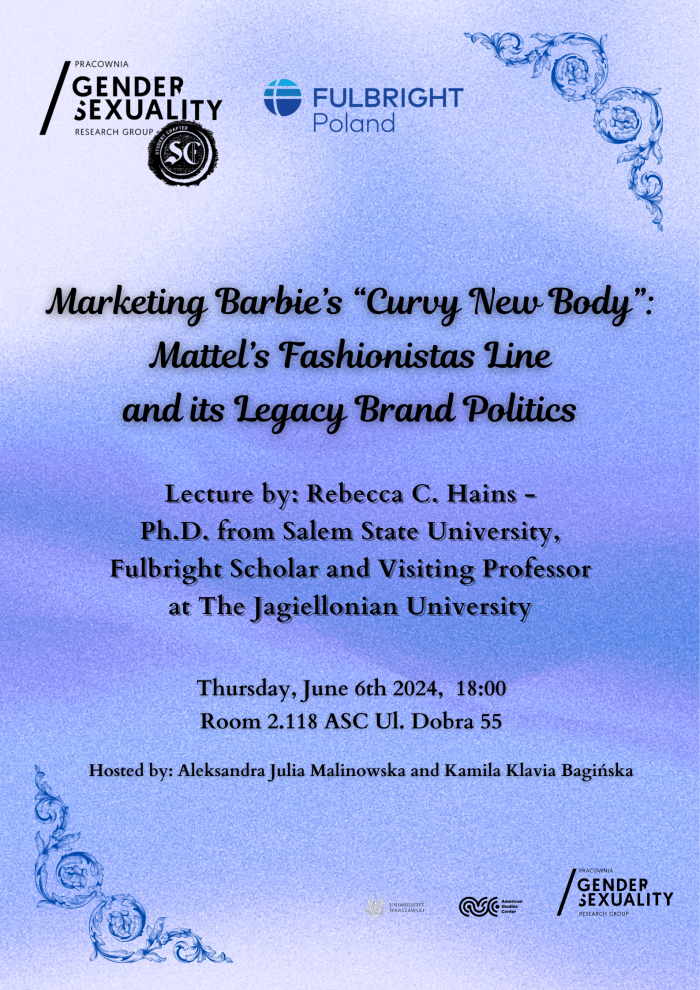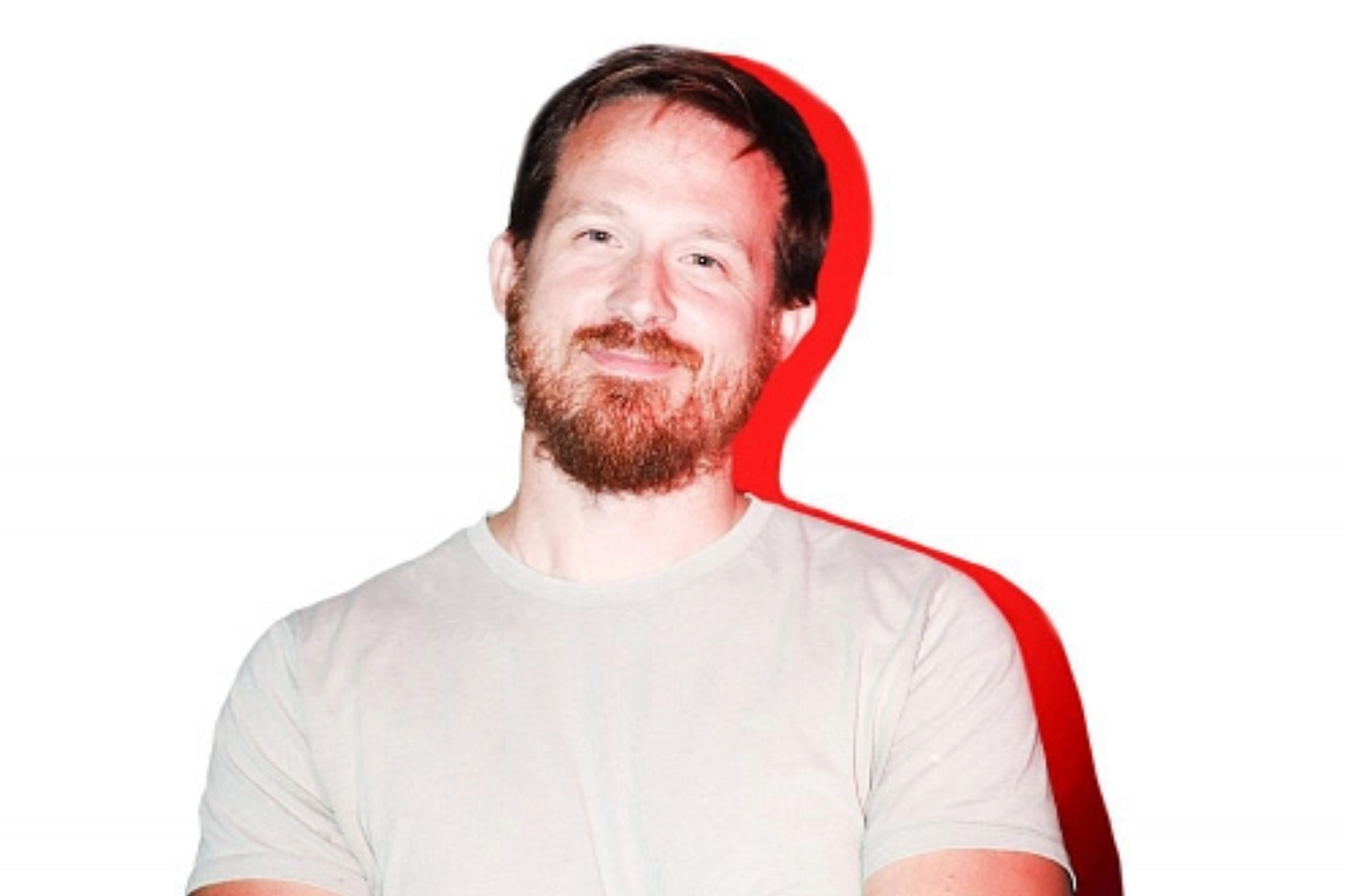We would like to invite you to an upcoming event hosted by the Gender/Sexuality Research Group’s Student Chapter!
A lecture given by a Fulbright Scholar, Doctor Rebecca C. Hains (Salem State
University), titled
Marketing Barbie’s “Curvy New Body”: Mattel’s Fashionistas Line and its Legacy Brand Politics
June 6, 2024, 6 pm, room 2.118

Where?
American Studies Center
Dobra 55, room 2.118
(The building features some mobility accommodations: ramp and lift)
What?
During this lecture, you will have the pleasure of listening to Dr. Hains’s exploration of Barbie from the feminist perspective, the history of Barbie’s body type, and the feminist critique around it. The talk will also discuss the PR surrounding the “Curvy” Barbies’ release, a topic that has sparked many intense debates.
We encourage you to visit the Student Chapter’s social media to access a chapter from Dr. Hains’s edited collection, The Marketing of Children’s Toys. This is a great supplement to the upcoming lecture!
Who?
Rebecca C. Hains, Ph.D., is a professor of media and communication at Salem State University, where she researches children’s media culture from a critical/cultural studies perspective. Hains authored the books Growing Up With Girl Power: Girlhood on Screen and in Everyday Life (Peter Lang, 2012) and The Princess Problem: Guiding Our Girls Through the Princess-Obsessed Years(Sourcebooks, 2014) and has contributed to anthologies such as 20 Questions About Youth and Media (Peter Lang, 2018) and Deconstructing Dolls: Girlhoods and the Meanings of Play (Berghahn Books, 2022). She has collaboratively edited several collections, including Cultural Studies of LEGO (Palgrave, 2019) and The Marketing of Children’s Toys(Palgrave, 2021), and has published in various journals, including Women’s Studies in Communication and Girlhood Studies. She serves on the editorial board of The Journal of Children and Media and is a 2023-2024 Fulbright Scholar to the Jagiellonian University in Krakow, Poland.




